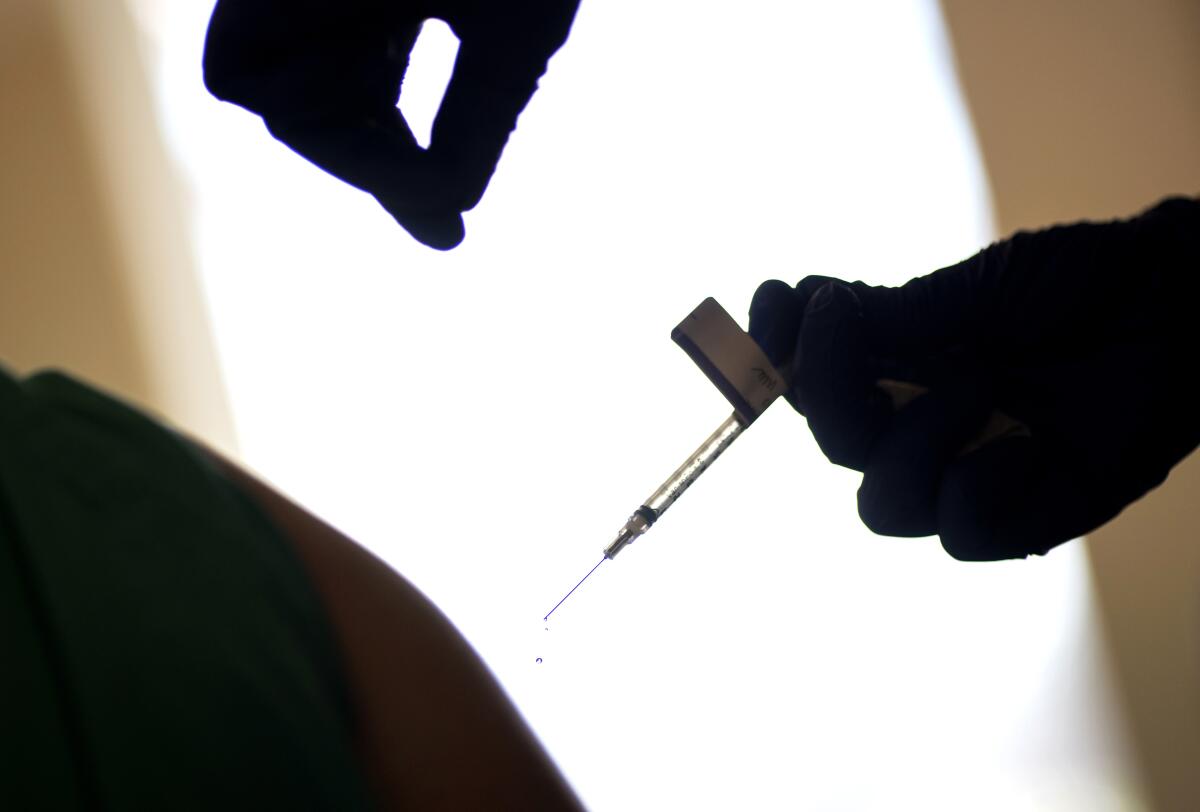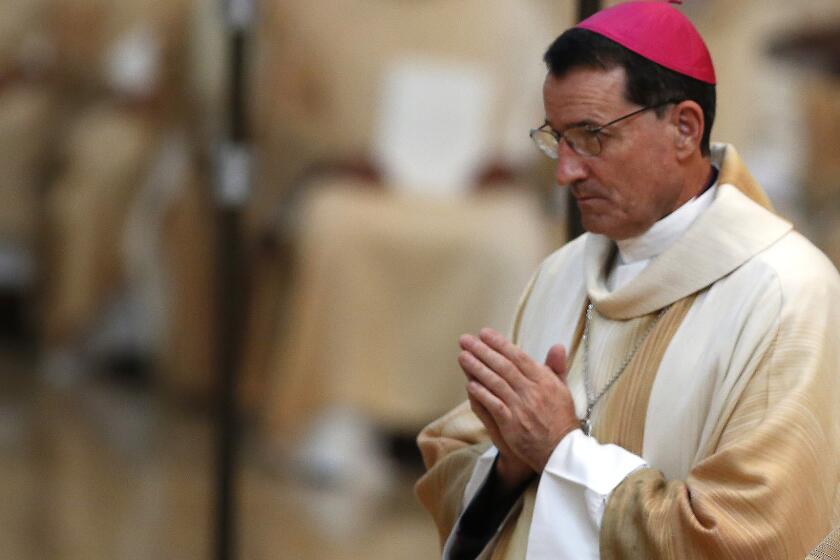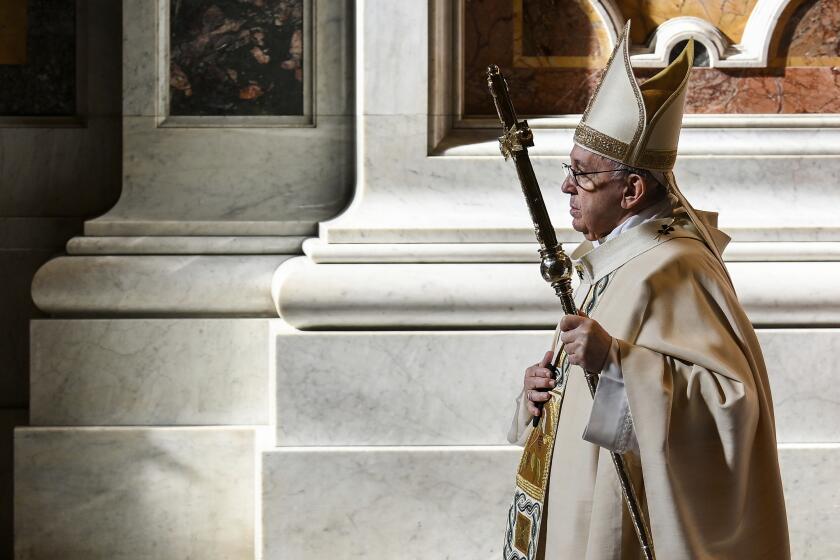Vatican OKs receiving COVID-19 vaccines that used abortion cell lines in research

- Share via
VATICAN CITY — The Vatican on Monday declared that it is “morally acceptable” for Roman Catholics to receive COVID-19 vaccines developed from research that used cells derived from aborted fetuses, guidance that came after some clergy in the U.S. — including a Fresno bishop — said such products were immoral.
The Congregation for the Doctrine of the Faith, the Vatican’s watchdog office for doctrinal orthodoxy, said it had received several requests for “guidance” during recent months. The office said that bishops, Catholic groups and experts have offered “diverse and sometimes conflicting pronouncements” on the matter.
Drawing on Vatican pronouncements in past years about developing vaccines prepared from cells derived from aborted fetuses, the watchdog office’s statement was examined by Pope Francis, who ordered it be made public.
Catholic teaching says abortion is a grave sin.
The Vatican concluded that “it is morally acceptable to receive COVID-19 vaccines that have used cell lines from aborted fetuses” in the research and production process when “ethically irreproachable” vaccines aren’t available to the public. But it stressed that the “licit” uses of such vaccines “does not and should not in any way imply that there is a moral endorsement of the use of cell lines proceeding from aborted fetuses.”
The Vatican didn’t name any of the COVID-19 vaccines already being given to people in some countries or authorized to be used soon.
Citing ethical concerns, Bishop Joseph Brennan said Catholics cannot avail themselves of any vaccine that has been developed with the use of stem cells.
In its statement, the Vatican said obtaining vaccines that do not pose an ethical dilemma is not always possible. It cited circumstances in countries “where vaccines without ethical problems are not made available to physicians and patients” or where special storage or transport conditions make their distribution more difficult.
Much of the Vatican’s pronouncement echoes a statement last week by officials of the U.S. Conference of Catholic Bishops. The U.S. conference officials said that “in view of the gravity of the current pandemic and the lack of availability of alternative vaccines,” receiving the vaccines being distributed in the U.S. is justified “despite their remote connection to morally compromised cell lines.”
Getting vaccinated against the coronavirus “ought to be understood as an act of charity toward the other members of our community,” the U.S. bishops conference officials said.
Two vaccines are now being administered in the U.S., one from drugmaker Pfizer and the other from Moderna.
Pope Francis is supporting demands for racial justice after the death of George Floyd and is blasting COVID skeptics and the media that spread their conspiracies.
Weeks earlier, two U.S. bishops, one in Texas and one in California, had denounced vaccines using cell lines from the tissue of aborted fetuses as immorally produced. One of the bishops said he refused to receive such a vaccine and encouraged rank-and-file Catholics to follow his lead.
The Vatican, in reassuring faithful Catholics that getting a COVID-19 vaccine would not violate the church’s moral teaching, noted that “health authorities do not allow citizens to choose the vaccine with which to be inoculated.” Given such circumstances, it is morally acceptable to receive vaccines that have used cell lines from aborted fetuses, the Vatican said.
The Vatican said the COVID-19 vaccines that are getting rolled out or are expected to receive authorization soon used cell lines “drawn from tissue obtained from two abortions that occurred in the last century.”
The Vatican hasn’t said if and when Francis would be vaccinated. The 84-year-old pontiff has a pilgrimage to Iraq planned for early March, and it’s widely expected that he and the aides accompanying him would get vaccinated ahead of travel abroad.
The doctrinal orthodoxy office said that “vaccination is not, as a rule, a moral obligation” and must be voluntary. But from an ethical point of view, “the morality of vaccination depends not only on the duty to protect one’s own health but also on the duty to pursue the common good,” the office said.
More to Read
Sign up for Essential California
The most important California stories and recommendations in your inbox every morning.
You may occasionally receive promotional content from the Los Angeles Times.















